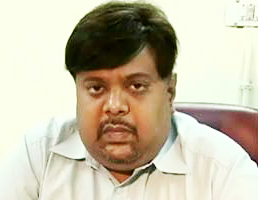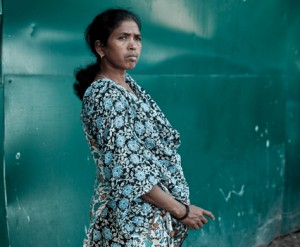By Team FI
The Soni Sori case is an unconscionable example of how India, the largest democracy in the world has often failed to check its growing human rights violations record.
For Soni Sori, this International Women’s Day is going to be just another day in Raipur jail, spent in pain and discomfort that constantly reminds her of the custodial torture and injustice meted out to her by the Chhattisgarh Police.
Soni Sori, an adivasi school teacher and the warden of a government-run school for tribal children in Jabeli, Dantewada, was arrested in Delhi on October 4th 2011. She has repeatedly claimed that the Chhattisgarh Police had been harassing her ever since she refused to be an informer against the Maoists, and even attempted to kill her after they arrested her nephew, Lingaram Kodopi, an outspoken journalist in September, 2011.
Charged under the Unlawful Activities Prevention Act (UAPA) among others, Kodopi and Soni have both been accused in several other cases of ‘Maoist violence’ and as alleged go-betweens for a bribe by Essar to the Maoists.
Fearing for her life, Soni Sori fled to Delhi to seek legal help. She spoke of her travails to the media including the news magazine Tehelka, but was arrested before she could take legal action. She pleaded with the Saket District Court and the Delhi High Court to be kept in custody in Delhi until she could file her petition in the Supreme Court. However, she was remanded to the custody of Chhattisgarh Police, albeit with explicit directions to ensure her safety and an order that a report be filed before the Delhi High Court, outlining steps taken to keep her safe.
After two days in custody, when Soni Sori had to be produced in front of the Dantewada Magistrate on the 10th October, she was in such a bad condition that she could not get down from the police van and go to the courtroom. A court clerk came to the police van and yet, it is wrongly recorded that she was produced before the Magistrate who remanded her to judicial custody for 14 days.
The police claimed ‘she slipped in the bathroom and had hurt her head’. The examining doctor at the District Hospital said ‘she was brought in unconscious, the X-ray showed injuries on her head and back, and black marks were observed on her fingertips’ – indicating she had received electric shocks. Initially Soni Sori herself said that she had fallen in the bathroom, but later retracted saying she had been threatened by the police that if she spoke of her torture, her brother, the sole caretaker of her three children, would be arrested.
Subsequently, in her statements to relatives and in a letter to the Supreme Court, Soni Sori said, “After repeatedly giving me electric shocks, my clothes were taken off. I was made to stand naked. SP Ankit Garg was watching me; sitting on his chair (…) he abused me in filthy language and humiliated me. After some time, he went out and (…) sent three boys. (They) started molesting me and I fell after they pushed me. Then they put things inside my body in a brutal manner. I couldn’t bear the pain and I was almost unconscious. After a long time, I regained consciousness (…) by then, it was already morning.”

Superintendent of Police, Ankit Garg
In response to a petition filed in the Supreme Court, a three-Judge Bench ordered an independent medical examination in NRS Medical College Hospital in Kolkata. The report, presented in Court on 25th Nov, 2011 states three stones were found inserted deep inside her private parts, which were the primary cause of her abdominal pain. The MRI scan also shows annular tears on her spine. Yet shockingly, none of the three hospitals in Chhattisgarh which ‘examined her’ found inflammation in her private parts, the stones lodged in her vagina and rectum.
Since then Soni has petitioned the Supreme Court for urgent medical attention and to be moved back to Jagdalpur Jail so that her frail body can be spared the torturous travel to Dantewada for every hearing on the numerous cases filed against her. Yet the Supreme Court on December 1, 2011 ordered that she remain in the custody in Chhattisgarh for an additional period of 55 days until the next hearing on 25th January, 2012. She is still lodged there while she waits for a hearing and so-called ‘urgent’ medical attention.
Ever since the evidence of her custodial torture surfaced, women’s groups, civil rights groups, civil society organizations, individuals and many others have been trying to work towards ensure her safety — protesting against the Chhattisgarh Police, demanding justice and action from the Chief Minister, seeking inquiry by the National Human Rights Commission, the National Commission of Women and so on.

Soni Sori: photo by Garima Jain-Tehelka
On December 21st, 2012, an open letter to the Supreme Court was issued urging the court to “give serious attention to the grave violation of the rights of a tribal woman undertrial, the facts and documents regarding which are pending before the Supreme Court in the case.”
The letter was signed by prominent personalities like Aruna Roy,Uma Chakravarti, Brinda Karat, Romila Thapar etc along with scores of other doctors, educationists, academicians, students and individuals. Joining them were 69 civil society groups and organisations working on women’s issues, health issues, civil and democratic rights, and worker’s issues from across the country.
On the 12th-13th January, 2012 a delegation of women’s groups went to meet Soni Sori in Central Jail, Raipur but were denied permission. They met the Chairpersons of both the State Human Rights Commission and the State Women’s Commission, both of whom said that the denial of permission did not constitute any violation of Soni’s rights. Additionally, the SCW said that since this was a `naxalite‘ case, caution was needed.
No step has been taken against any of the errant police officers – even Constable Mankar, who was recorded by Tehelka admitting that false cases had been registered against Soni and Kodopi. As for SP Ankit Garg, he has been awarded a Gallantry Award by the President on Jan 26, 2012. This news evoked unequivocal condemnation from women’s groups in the country.
On 29 January, activists held a hunger fast in Delhi in order to express solidarity with her plight.
Charges against Soni Sori
Soni Sori has multiple cases against her—from being a participant in a Naxalite raid at a Congress worker’s house, to acting as an intermediary for the Maoists—and each of the charge sheets show her as an “absconder”… this, at a time, when Soni Sori was not only regularly attending to her duties, but had also met with police authorities to complain about her own harassment by the Maoists: her father has been shot by the Maoists, at the time during which she was allegedly working with them.
With all so-called autonomous bodies like the human rights and women’s commissions keeping their hands off the case under the pretext of them being ‘sub-judice’, justice continues to elude Soni Sori. And it will continue to do so as long as the nation continues to delude itself about what constitutes a human rights violation.
From Irom Sharmila to Soni Sori, these are the faces that should haunt the Indian conscience, today.
India, my country does not deserve to be called a democracy. Simply ensuring that a peoples mandate takes place every few years is not democracy. People need to rise up against the kind of brutality being meted out to the tribals. As a woman I stand with Soni and Irom and so many like her.
shame for us…..
40 years ago, a tribal woman was raped in Police Station and the the whole country went in flame when Policemen were acquitted- changed the sociography of Indian women’s movement and government was forced to change the law.
Soni’s case is worst than Mathura and still there were no largescale protest that are forcing Establishment to do justice to Soni.
Is this the reflection on Women’s movement in India – or as Vibhuti says, NGOisation has crippled our ability to initiate struggle to make Establishment heard and act?